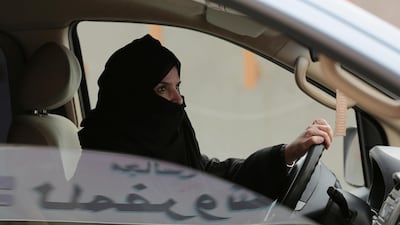The remarks this week by a prominent Saudi cleric on the wearing of the abaya are the latest sign of the kingdom's ongoing transformation. Much like the UAE, Riyadh is taking steps to diversify and modernise its oil-based economy with the Vision 2030 plan. Simultaneously, Mohammed bin Salman, the Saudi Crown Prince, has spearheaded a tranche of social reforms that will alter life in the kingdom for years to come. Next month commercial cinemas will reopen after a three-decade ban. Visitor restrictions will be lifted, transforming the Red Sea coast into an upscale tourist destination. Meanwhile a sweeping anti-corruption drive in the country raising $106 billion has boosted investor confidence. Amid news of an upcoming Saudi Aramco IPO, the country is pumping billions into renewable energy. It has certainly been a groundbreaking year in the kingdom.
One group that has benefited greatly from the transformation have been Saudi women. Last September, the lifting of a female driving ban was welcomed. That same month, women were permitted to participate in public National Day celebrations in a stadium in Riyadh for the first time. Shortly thereafter, Lebanese singer Hiba Tawaji filled a stadium for the first public concert by a female artist. Saudi women can now attend football matches. In the most recent development, Sheikh Abdullah Al Mutlaq – a member of the country's highest religious body – said publicly this week that Saudi women should not have to wear the abaya robe, as current law demands. "More than 90 per cent of pious Muslim women in the Muslim world do not wear abayas," he said. "So we should not force people to wear abayas." He was backed up by other clerics on social media. If the law changes, many women for whom the abaya holds cultural and religious resonance will no doubt still choose to wear it. Yet the implications for female choice that Sheikh Abdullah's remarks hold are praiseworthy.
As has been frequently observed on these pages, King Salman and his Crown Prince have met words with deeds. With 70 per cent of Saudi citizens young and technologically savvy, the latest raft of social reforms are wise. And while there is still work to do, there is little doubt that the consequences of Saudi liberalisation will be profound.

